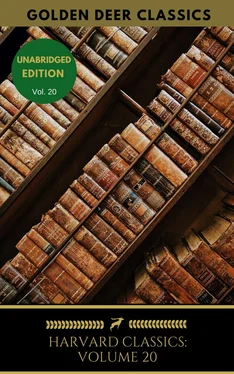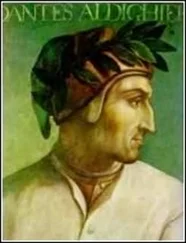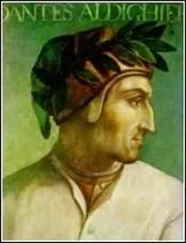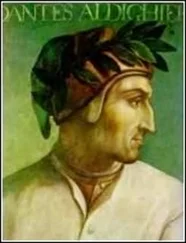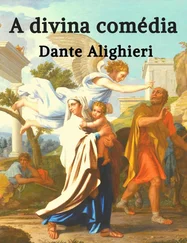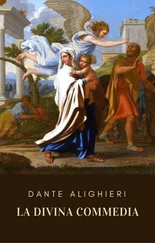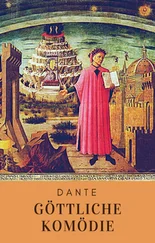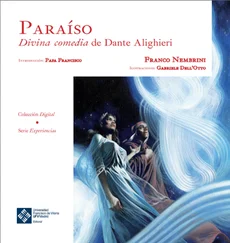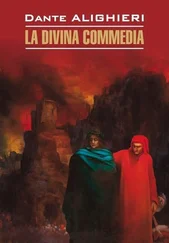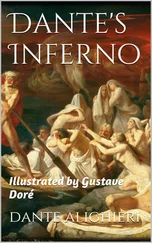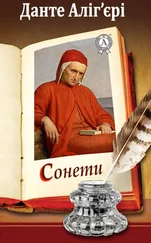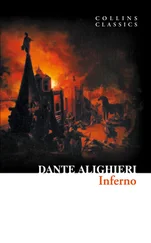Array Dante Alighieri - Harvard Classics Volume 20
Здесь есть возможность читать онлайн «Array Dante Alighieri - Harvard Classics Volume 20» — ознакомительный отрывок электронной книги совершенно бесплатно, а после прочтения отрывка купить полную версию. В некоторых случаях можно слушать аудио, скачать через торрент в формате fb2 и присутствует краткое содержание. Жанр: unrecognised, на английском языке. Описание произведения, (предисловие) а так же отзывы посетителей доступны на портале библиотеки ЛибКат.
- Название:Harvard Classics Volume 20
- Автор:
- Жанр:
- Год:неизвестен
- ISBN:нет данных
- Рейтинг книги:5 / 5. Голосов: 1
-
Избранное:Добавить в избранное
- Отзывы:
-
Ваша оценка:
- 100
- 1
- 2
- 3
- 4
- 5
Harvard Classics Volume 20: краткое содержание, описание и аннотация
Предлагаем к чтению аннотацию, описание, краткое содержание или предисловие (зависит от того, что написал сам автор книги «Harvard Classics Volume 20»). Если вы не нашли необходимую информацию о книге — напишите в комментариях, мы постараемся отыскать её.
1. The Divine Comedy, by Dante Alighieri
Also available:
The Complete Harvard Classics Collection (51 Volumes + The Harvard Classic Shelf Of Fiction)
50 Masterpieces You Have To Read Before You Die (Golden Deer Classics)
Harvard Classics Volume 20 — читать онлайн ознакомительный отрывок
Ниже представлен текст книги, разбитый по страницам. Система сохранения места последней прочитанной страницы, позволяет с удобством читать онлайн бесплатно книгу «Harvard Classics Volume 20», без необходимости каждый раз заново искать на чём Вы остановились. Поставьте закладку, и сможете в любой момент перейти на страницу, на которой закончили чтение.
Интервал:
Закладка:
Soon as that way he saw us pass. “O thou!”
He cried, “who through the infernal shades art led,
Own, if again thou know’st me. Thou wast framed
Or ere my frame was broken.” I replied:
“The anguish thou endurest perchance so takes
Thy form from my remembrance, that it seems
As if I saw thee never. But inform
Me thou art, that in a place so sad
Art set, and in such torment, that although
Other be greater, none disgusteth more.”
He thus in answer to my words rejoin’d:
“Thy city, heap’d with envy to the brim,
Aye, that the measure overflows its bounds,
Held me in brighter days. Ye citizens
Were wont to name me Ciacco. [37]For the sin
Of gluttony, damned vice, beneath this rain,
E’en as thou seest, I with fatigue am worn:
Nor I sole spirit in this woe: all these
Have by like crime incurr’d like punishment.”
No more he said, and I my speech resumed:
“Ciacco! thy! dire affliction grieves me much,
Even to tears. But tell me, if thou know’st,
What shall at length befall the citizens
of the divided city; [38]whether any
Just one inhabit there: and tell the cause,
Whence jarring Discord hath assail’d it thus.”
He then: “After long striving they will come
To blood; and the wild party from the woods [39]
Will chase the other [40]with much injury forth.
Then it behooves that this must fall, [41]within
Three solar circles; [42]and the other rise
By borrow’d force of one, who under shore
Now rests. [43]It shall a long space hold aloof
Its forehead, keeping under heavy weight
The other opprest, indignant at the load,
And grieving sore. The just are two in number. [44]
But they neglected. Avarice, envy, pride,
Three fatal sparks, have set the hearts of all
On fire.” Here ceased the lamentable sound;
And I continued thus: “Still would I learn
More from thee, further parley still entreat.
Of Farinata and Tegghiaio [45]say,
They who so well deserved; of Giacopo, [46]
Arrigo, Mosca, [47]and the rest, who bent
Their minds on working good. Oh! tell me where
They bide, and to their knowledge let me come.
For I am prest with keen desire to hear
If Heaven’s sweet cup, or poisonous drug of Hell,
Be to their lip assign’d.” He answer’d straight:
“These are yet blacker spirits. Various crimes
Have sunk them deeper in the dark abyss.
If thou so far descendest, thou mayst see them.
But to the pleasant world, when thou return’st,
Of me make mention, I entreat thee, there.
No more I tell thee, answer thee no more.”
This said, his fixed eyes he turn’d askance,
A little eyed me, then bent down his head,
And ’midst his blind companions with it fell.
When thus my guide: “No more his bed he leaves,
Ere the last angel-trumpet blow. The Power
Adverse to these shall then in glory come,
Each one forthwith to his sad tomb repair,
Resume his fleshly vesture and his form,
And hear the eternal doom re-echoing rend
The vault.” So pass’d we through that mixture foul
Of spirits and rain, with tardy steps; meanwhile
Touching, though slightly, on the life to come.
For thus I question’d: “Shall these tortures, Sir!
When the great sentence passes, be increased,
Or mitigated, or as now severe?”
He then: “Consult thy knowledge; that decides,
That, as each thing to more perfection grows,
It feels more sensibly both good and pain.
Though ne’er to true perfection may arrive
This race accurst, yet nearer then, than now,
They shall approach it.” Compassing that path,
Circuitous we journey’d; and discourse,
Much more than I relate, between us pass’d:
Till at the point, whence the steps led below,
Arrived, there Plutus, the great foe, we found.
Canto VII
Argument.—In the present Canto, Dante describes his descent into the fourth circle, at the beginning of which he sees Plutus stationed. Here one like doom awaits the prodigal and the avaricious; which is, to meet in direful conflict, rolling great weights against each other with mutual upbraidings. From hence Virgil takes occasion to show how vain the goods that are committed into the charge of Fortune; and this moves our author to inquire what being that Fortune is, of whom he speaks: which question being resolved, they go down into the fifth circle, where they find the wrathful and gloomy tormented in the Stygian lake. Having made a compass round great part of this lake, they come at last to the base of a lofty tower.
“Ah me! O Satan! Satan!” [48]loud exclaim’d
Plutus, in accent hoarse of wild alarm:
And the kind sage, whom no event surprised,
To comfort me thus spake: “Let not thy fear
Harm thee, for power in him, be sure, is none
To hinder down this rock thy safe descent.”
Then to that swoln lip turning, “Peace!” he cried,
“Curst wolf! thy fury inward on thyself
Prey, and consume thee! Through the dark profound,
Not without cause, he passes. So ’tis will’d
On high, there where the great Archangel pour’d
Heaven’s vengeance on the first adulterer proud.”
As sails, full spread and bellying with the wind,
Drop suddenly collapsed, if the mast split;
So to the ground down dropp’d the cruel fiend.
Thus we, descending to the fourth steep ledge,
Gain’d on the dismal shore, that all the woe
Hems in of all the universe. Ah me!
Almighty Justice! in what store thou heap’st
New pains, new troubles, as I here beheld.
Wherefore doth fault of ours bring us to this?
E’en as a billow, on Charybdis rising,
Against encounter’d billow dashing breaks;
Such is the dance this wretched race must lead,
Whom more than elsewhere numerous here I found.
From one side and the other, with loud voice,
Both roll’d on weights, by main force of their breasts,
Then smote together, and each one forthwith
Roll’d them back voluble, turning again;
Exclaiming these, “Why holdest thou so fast?”
Those answering, “And why castest thou away?”
So, still repeating their despiteful song,
They to the opposite point, on either hand,
Traversed the horrid circle; then arrived,
Both turn’d them round, and through the middle space,
Conflicting met again. At sight whereof
I, stung with grief, thus spake: “O say, my guide!
What race is this. Were these, whose heads are shorn,
On our left hand, all separate to the Church?”
He straight replied: “In their first life, these all
In mind were so distorted, that they made,
According to due measure, of their wealth
No use. This clearly from their words collect,
Which they howl forth, at each extremity
Arriving of the circle, where their crime
Contrary in kind disparts them. To the Church
Were separate those, that with no hairy cowls
Are crowned, both Popes and Cardinals, o’er whom
Avarice dominion absolute maintains.”
I then: “’Mid such as these some needs must be,
Whom I shall recognize, that with the blot
Of these foul sins were stain’d.” He answering thus:
“Vain thought conceivest thou. That ignoble life,
Which made them vile before, now makes them dark,
And to all knowledge indiscernible.
For ever they shall meet in this rude shock:
These from the tomb with clenched grasp shall rise,
Those with close-shaven locks. That ill they gave,
And ill they kept, hath of the beauteous world
Читать дальшеИнтервал:
Закладка:
Похожие книги на «Harvard Classics Volume 20»
Представляем Вашему вниманию похожие книги на «Harvard Classics Volume 20» списком для выбора. Мы отобрали схожую по названию и смыслу литературу в надежде предоставить читателям больше вариантов отыскать новые, интересные, ещё непрочитанные произведения.
Обсуждение, отзывы о книге «Harvard Classics Volume 20» и просто собственные мнения читателей. Оставьте ваши комментарии, напишите, что Вы думаете о произведении, его смысле или главных героях. Укажите что конкретно понравилось, а что нет, и почему Вы так считаете.
